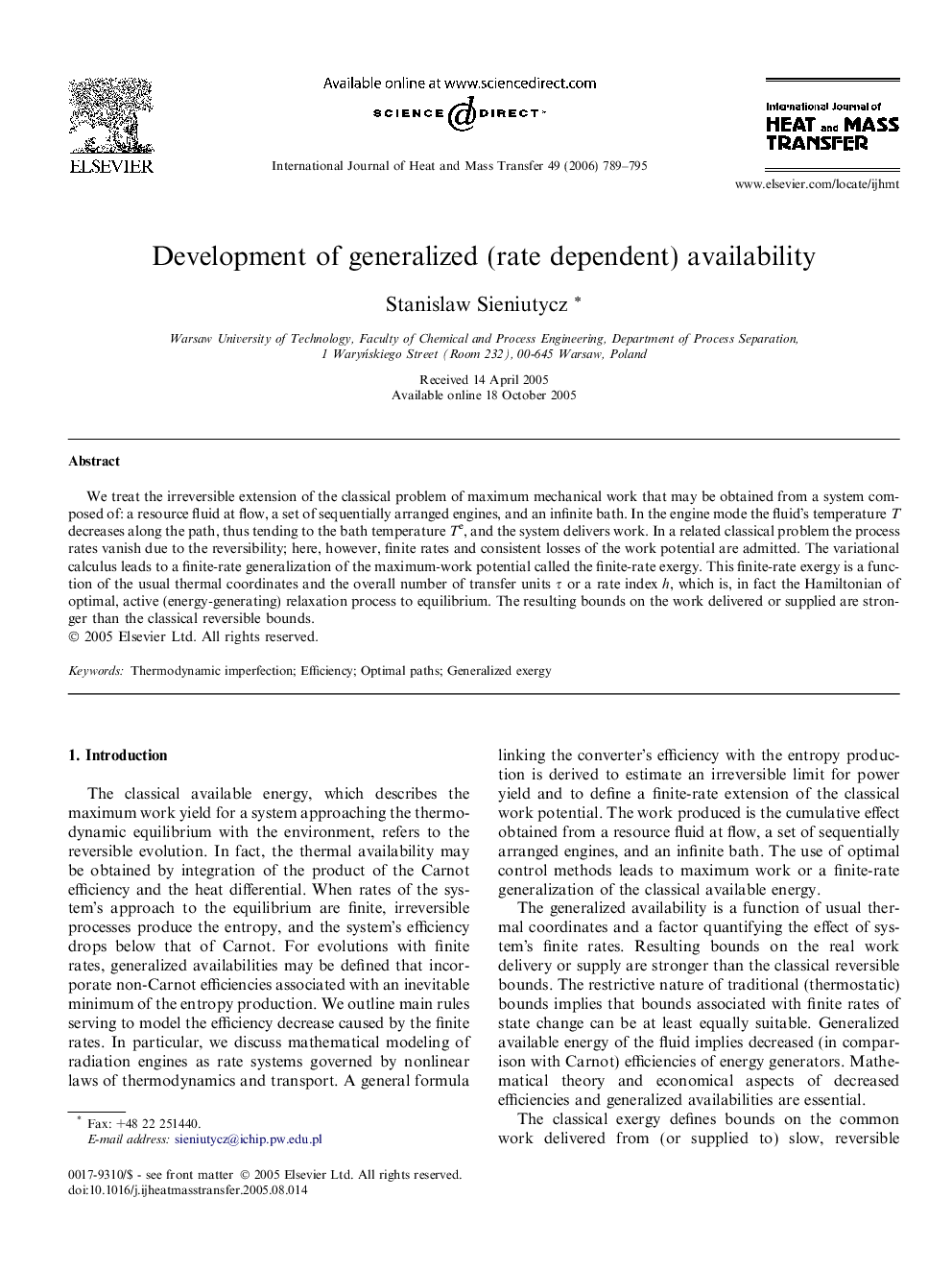| Article ID | Journal | Published Year | Pages | File Type |
|---|---|---|---|---|
| 662530 | International Journal of Heat and Mass Transfer | 2006 | 7 Pages |
Abstract
We treat the irreversible extension of the classical problem of maximum mechanical work that may be obtained from a system composed of: a resource fluid at flow, a set of sequentially arranged engines, and an infinite bath. In the engine mode the fluid's temperature T decreases along the path, thus tending to the bath temperature Te, and the system delivers work. In a related classical problem the process rates vanish due to the reversibility; here, however, finite rates and consistent losses of the work potential are admitted. The variational calculus leads to a finite-rate generalization of the maximum-work potential called the finite-rate exergy. This finite-rate exergy is a function of the usual thermal coordinates and the overall number of transfer units Ï or a rate index h, which is, in fact the Hamiltonian of optimal, active (energy-generating) relaxation process to equilibrium. The resulting bounds on the work delivered or supplied are stronger than the classical reversible bounds.
Keywords
Related Topics
Physical Sciences and Engineering
Chemical Engineering
Fluid Flow and Transfer Processes
Authors
Stanislaw Sieniutycz,
